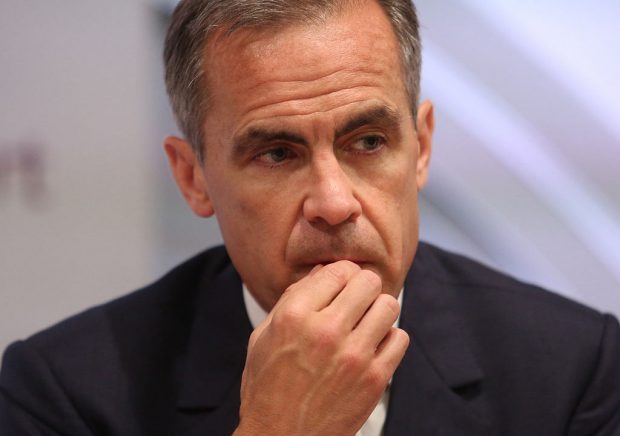One story dominates the financial news today: the prospect of the Bank of England cutting the base rate for the first time in seven years.
It is widely expected that interest rates will drop to 0.25 per cent at lunchtime. The base rate has stayed at 0.5 per cent since March 2009.
Last month the Bank’s Monetary Policy Committee voted to hold interest rates, despite economists predicting a cut. While a reduction is by no means a sure thing, there is increasing pressure on the Bank to act after recent poor economic data.
‘Economic data since the referendum have weakened sharply. There is a real need for more stimulus now,’ said Samuel Tombs, chief UK economist at Pantheon Macroeconomics.
The Bank of England also releases the quarterly Inflation Report at 12pm.
Meanwhile, The Times reports that savers appear to be hoarding cash at the fastest pace since the financial crisis over fears that the Bank of England may eventually cut interest rates into negative territory.
Statistics from the Bank show households and businesses have increased their holdings of banknotes and coins at a rate of more than 8 per cent a year and there was a rapid acceleration after Britain voted to leave the EU.
Simon Ward, chief economist at Henderson Global Investors, said that savers may be stuffing cash under the mattress ‘because the Bank is expected to cut interest rates significantly, possibly even imposing a negative rate on bank reserves, forcing banks to start charging for operating current accounts’.
The paper also reports that the economy is shrinking at the fastest rate since the financial crisis. The all-sector purchasing managers’ index, which tracks output across manufacturing, services and construction and is regarded as one of the best barometers of the economy, fell in July to the lowest level since April 2009 and was the steepest one-month decline in the survey’s 20-year history.
London’s luxury homes
Interest in renting London’s luxury homes has bucked the Brexit property lull, according to Knight Frank.
According to The Telegraph, the estate agency said that the number of tenancies agreed for prime properties in the last three months was 3 per cent higher than in the same period in 2015. Viewings on homes that rent for between £500 and £5,000 per week were up almost 16 per cent on the same period in 2015.
Retirement
Women retiring this year expect to have an average £14,450 a year to live on – some 27 per cent less than men, according to new research published on Thisismoney.
Women’s pensions are currently at their highest level since Prudential started carrying out the annual research nine years ago. Nonetheless the gender gap has widened in the past year, because men’s pensions have risen faster. The pensions giant has recorded a dramatic shift since 2008, as back then women retired on £11,300 – 46 per cent less than men.
Digital detox
The scale of the UK’s obsession with the internet has been laid bare by a new study showing that the ever increasing amount of time we spend online is leading to lost sleep, neglected housework and less time spent with friends and family, The Guardian reports.
For the first time, the annual Communications Market Report from media and telecoms regulator Ofcom has delved into how people cope with spending so much time connected, finding that more than a third of UK internet users are deciding to take ‘digital detox’ breaks from the web.
On average, UK adults now say they spend 25 hours a week online, up from nine hours in 2005. Three quarters of UK internet users say it is important to their daily lives and 59 per cent say they are ‘hooked’ on the device they use to connect.






Comments